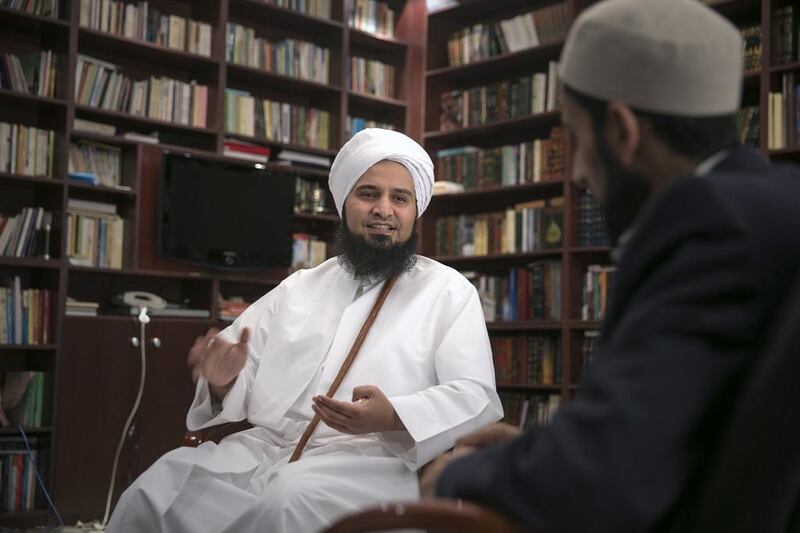The region’s conflicts have shed light on the proliferation of takfirist movements operating in the Arab world and beyond. They are a threat to the people of the region as much as they are to countries and they must be challenged. We all have a collective role in fulfilling this duty. Here are some recommendations which will aid the task.
Governing bodies and political entities should halt their dealings with takfirist ideologies as and when it is employed as a tool in balance-of-power politics. At times we see it being attacked and at others we see it being supported.
We have even seen in the past those who nurture a fertile climate for its growth only to later exploit its use in political trade-offs. This has been the case in many Arab countries over the past 20 years.
Seminaries, research institutions and other organisations responsible for religious services must commission Sharia-based studies that address the intellectual erroneousness of this ideology. These studies have to be strong in their argument and precise in their reference to legal texts. They have to tackle those specious issues takfirists exploit to attract membership into their movements.
These studies must be published and widely distributed. They should be incorporated into curriculums and studied in schools, mosques and seminaries.
Seminars should be organised around these studies. Advocates of takfirist ideology should be invited to attend so they can be publicly addressed through argument. Broadcast media – news, public affairs, and talk show programmes – should avoid hosting any proponent of takfirism without also having someone to respond to their fallacy.
Faith leaders and scholars have to declare their rejection of takfirism more openly and publicly. They have a moral duty to fulfil their responsibility of creating awareness around this issue. They must do this without fear of reprisal. When larger numbers of scholars and preachers do this, exponents of takfirism will be powerless to respond because an informed public conscience will be created around the error of this ideology.
Religious scholars, intellectuals, governments and the media must have the courage to acknowledge their own unintended involvement in creating a climate which aided the spread of takfirist ideology.
Younger generations become prey to false claims of jihad when religious scholars and educators become derelict in their duty to educate them about their religion.
Given that many youth already feel anger at the weakness, defeatism and corruption they witness and experience on a daily basis, a vacuum of religious knowledge delivers them far too easily to extremist ideologies who offer them false hopes of glory and might.
A collective effort to restore the stature of time-honoured seminaries and universities like Al-Azhar in Egypt, Zaytuna in Tunisia, Qarawiyyin in Morocco, and the Hadramawt and Levant traditions, and the traditional schools found in Mauritania, the subcontinent and Sudan is also necessary.
They need to be given financial and administrative independence. Any attempts to tamper with their time-tested curricula must be prevented and they should be protected from being used by political parties in their quests for power. The role of these institutions in political life should be as independent ethical and moral advisers.
Quick fix solutions to takfirism are no use. They only complicate existing dilemmas and corroborate the delusions of younger generations. Among them are an over-reliance on the state security apparatus to deal with takfirism. Though important, there is a tendency to overburden the state with responsibility. We must also avoid searching for ready-made solutions and selecting options that are limited in their scope that fail to comprehend the interconnected issues related to takfirism and extremism.
The idea that benefit can be derived from the failures of “Islamists” must be discarded. To believe that their failures will aid in creating generations of secular, non-religious men and women who willingly embrace western paradigms is a mirage. Such ideas will not bring any prosperity to our societies and will only serve to deepen religious and secular extremism.
Native models and cultural perspectives must be rebuilt. They are those that emerge from within the Islamic tradition and its cultural universe and which are embracing of the changes in our time.
Unless this is the case, younger generations of Muslims will be stuck between rigidity – being insistent on a tradition that was established on the variables of a past time, and solubility – identifying with others to the extent that their own identities are lost.
Escaping from this dualism will give them the assurance and confidence to interact with the wider human community as equals.
It will lead them to an eagerness for coexistence that is participatory in nature and ambitious enough to contribute to the advancement of human life.
Habib Ali Al Jifri is the founder of Tabah Foundation, an Islamic research institution in Abu Dhabi that offers faith-based perspectives on contemporary Muslim and global issues
On Twitter: @alhabibali





